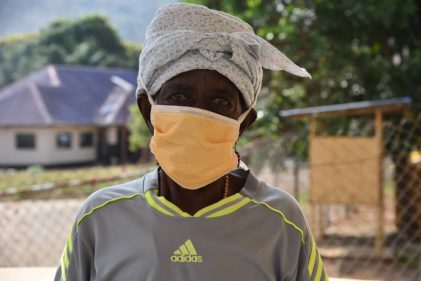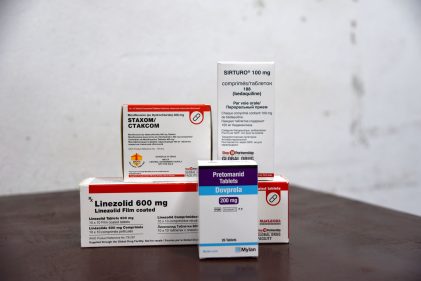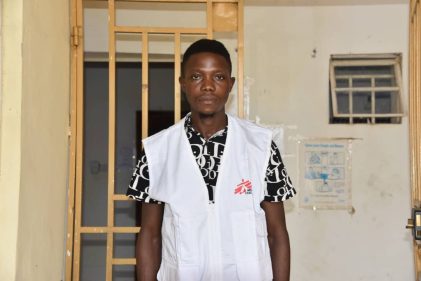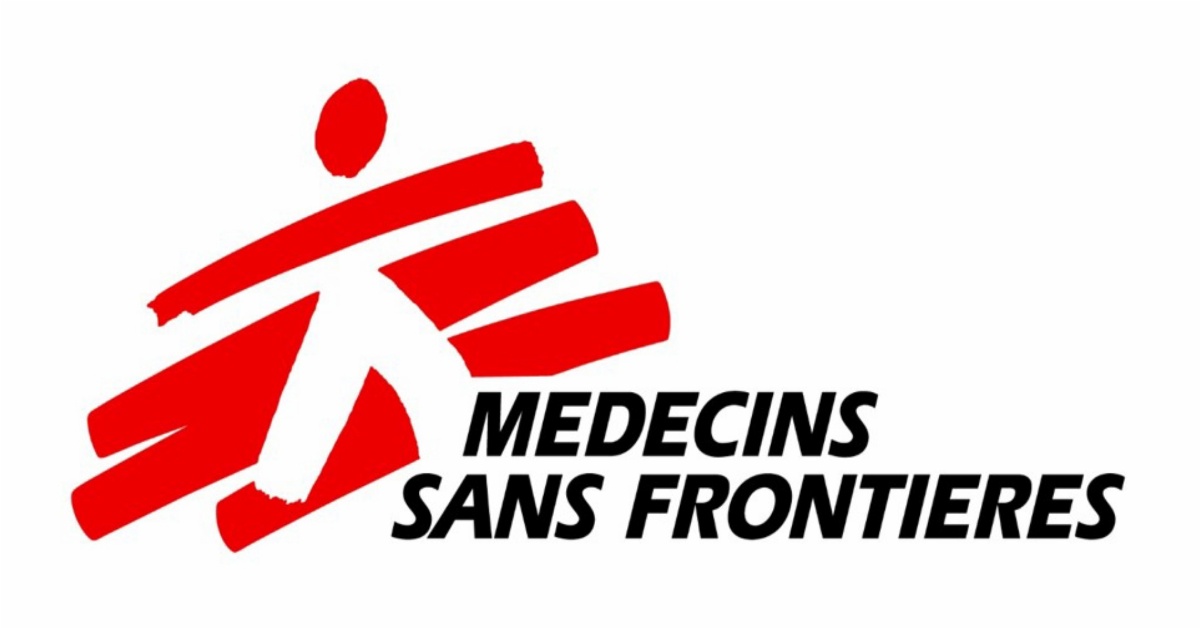“I was on the farm harvesting rice when I first started coughing,” says 71-year-old Yeanoh Kargbo. “From that day, the coughing got worse. I went to so many hospitals and they gave me a lot of medicine. I also tried traditional herbs, but I wasn’t getting better.”
Eventually Yeanoh came to Makeni Government hospital, in Sierra Leone’s Bombali district, where a ground-breaking new treatment had just become available for patients with drug-resistant tuberculosis (DR-TB), with the help of international medical organisation Médecins Sans Frontières/Doctors Without Borders (MSF) and the Ministry of Health and Sanitation. This new regimen has also been rolled out to other DR-TB sites by the National Leprosy and Tuberculosis Control Programme in an effort to improve treatment outcomes and find the missing cases. Sierra Leone was the first country in the world to make this shorter treatment routinely available for people with DR-TB, and Yeanoh was one of the first patients to be enrolled in the programme.

“It was only when I came to Makeni hospital that my health started to improve,” says Yeanoh. “I was put on the new six-month regimen and already I am feeling so much better.”
Known as BPaLM/BPaL, the treatment is a combination of the drugs bedaquiline, pretomanid, linezolid and moxifloxacin. In May 2022, based on the results of the MSF-led TB-PRACTECAL clinical trial, the World Health Organization (WHO) released a rapid communication approving the regimen as a preferred treatment for DR-TB patients. In December 2022, the WHO updated global TB treatment guidelines to fully endorse this regiment.

“This is a major milestone for TB care in Sierra Leone,” says MSF project coordinator Mohsin Rafiq. “We applaud the Ministry of Health and Sanitation for taking this important step in making the latest advancements in TB care accessible to those who need it.”
Yeanoh was fortunate in starting the new treatment, which has fewer side effects.
Another patient, Fatima [not her real name] cared for her husband throughout his treatment for DR-TB. A few weeks after he was cured, Fatima started coughing, suffering body pains and losing weight. Assuming she had a cold, she was perplexed when the medicines she took for her symptoms had no effect.
“Even though I was taking medicine for coughing and the body pain, I kept getting worse with every passing day,” says Fatima. “Scared that I might die, my family decided to take me to the traditional healers to be cured. They were convinced that herbs were my only option.Eventually she went to Makeni hospital for tests and was finally diagnosed correctly with DR-TB. Having started treatment, her condition began to improve, until she received the news that her husband had left her, sending her into a depression and prompting her to abandon her medication.
With the support of MSF’s mental health team, and with the food packages for patients who are struggling financially, she was able to restart her treatment and finish it successfully.
“The counsellors would often visit me at my house and offer endless words of encouragement, which helped me out of my depression,” says Fatima.
Mental health support is a vital component of MSF’s person-centred approach to treating DR-TB. As well as the psychosocial support provided by the mental health team, patients are linked up with peer-support buddies, who recently completed DR-TB treatment themselves, and who share their stories and encourage patients to keep going with their treatment until the end.

Implementation of newly WHO recommended tools have enabled more children to be diagnosed with TB, including children living with HIV, who are more susceptible to the disease. Once every week, MSF’s outreach team visits 11 sites throughout Bombali district, consulting and screening around 50 children per day. Generally, between two and five children each day have TB symptoms and receive further investigations. Detecting TB early means the disease is generally less advanced and easier to cure, allowing patients to complete their treatment sooner, regain their health and get on with their lives.
MSF has been working in Sierra Leone since 1986, and currently runs medical projects in three districts: Kenema, Tonkolili and Bombali. In Bombali district, MSF works in collaboration with the National Leprosy and Tuberculosis Control Programme to support the diagnosis and management of TB. MSF has worked in Makeni supporting TB programmes since 2019 alongside Ministry of Health and Sanitation staff. In 2022, the number of patients enrolled in the DR-TB programme, increased by 50 per cent from the previous year.












I thank you to be in Sierra Leone to help people’s for health status.
Also for free medical treatment
Job employment